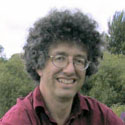Advisory Board and Editors Ecology

Brock A Harpur
Brock Harpur is an Assistant Professor at Purdue University. His work explores the evolution and genetics of honey bees. Brock completed his Ph.D. on population genomics of honey bees at York University. Brock has been awarded the prestigious Julie Payette Research Scholarship from the National Science and Engineering Research Council, an Ontario Graduate Scholarship, the Entomological Society of Canada’s President’s Prize, and was an Elia Research Scholar during his time at York University.

Xavier A Harrison
Senior Lecturer in Ecology, University of Exeter, UK
Co-Secretary, Microbial Ecology Special Interest Group, British Ecological Society.
How important are microbes for determining animal health? My work seeks to understand how host-associated microbial communities can affect traits like digestion, nutrition, and disease susceptibility. I use amphibians as a model system for studying the vertebrate skin microbiome and how it protects against infection by the lethal pathogens Ranavirus and chytrid fungus.
I also study the structure and function of the gut microbiome in migratory birds.

Martin Hartmann
Senior Researcher at ETH Zurich with strong interests in microbial ecology, molecular biology, bioinformatics and statistics.

Alan Hastings
Distinguished Professor of Environmental Science and Policy. Fellow of the American Academy of Arts and Sciences. Former President of the Society for Mathematical Biology and Editor of the Encyclopedia of Theoretical Ecology.


Brandon P Hedrick
Assistant Professor of Biomedical Sciences, Cornell University
An evolutionary biologist, paleobiologist, and ecologist primarily interested in comparative morphology. I work across the vertebrate tree including reptiles, amphibians, and birds, but specialize on bats and dinosaurs.

Elizabeth Hemming-Schroeder
Dr. Hemming-Schroeder is an Assistant Professor and member of the Center for Vector-borne Infectious Diseases. Dr. Hemming-Schroeder's research training includes the study of malaria, a disease that affects nearly half of the world's population, as well as tick-borne diseases in the United States. Her research primarily uses methods in molecular biology, population genetics, and bioinformatics to study vector-borne disease ecology and epidemiology. She is broadly interested in how ecological factors, environmental modifications, and public health interventions impact pathogen and vector population dynamics and how genetic and epidemiological information on pathogens and vectors can be used to improve infectious disease control and elimination.

Steven Heritage
Dr. Steven Heritage is a teaching professor in the Department of Genetics, Cell Biology, and Anatomy at the University of Nebraska Medical Center. He is a a clinical & evolutionary anatomist, mammalogist, and phylogenetic biologist mainly working on African mammals. He also serves as a coordinator for the IUCN SSC Afrotheria Specialist Group.

Christian Hof
Junior Research Group Leader at Technical University of Munich, Germany. Before: researcher at the Senckenberg Biodiversity and Climate Research Centre, Frankfurt. PhD from the University of Copenhagen, Denmark. Diploma (M.Sc.) from Philipps-University Marburg, Germany. Member of the German Young Academy; German Representative of the International Biogeography Society.

Christian Hoffmann
Assistant Professor of Microbiome and Nutrition, at the Dept of Food Sciences and Experimental Nutrition, at the University of São Paulo, Brazil, and a Research Fellow at the Laboratory of Applied Immunology, at the University of Brasilia. His experience is focused on the molecular ecology of microbial systems, especially host-associated microbial ecosystems. For the last 10 years, he has centered his research questions on the human gut microbiome, using both human studies as well as animal models. Key aspects of this research include the influence of the gut microbiome on health and disease, the modulation of the gut microbiome through diet and the immune system, especially through the use of unavailable carbohydrates.

Emily Hollister
Situated at the interface of microbial ecology, bioinformatics, and biostatistics, my research group is dedicated to the study of the structure and function of mixed microbial communities. Our work includes the study of the human microbiome and microbiome-environment interactions, as well as the development and improvement of bioinformatics approaches for microbiome analysis. I am an assistant professor in the Department of Pathology & Immunology at Baylor College of Medicine and serve as the Director of Microbial Ecology for the Texas Children's Microbiome Center at Texas Children's Hospital.

David WE Hone
I'm a Reader in Zoology at Queen Mary University of London. I've previously worked at University College Dublin and the University of Bristol and had postdoctoral positions at the Institute for Vertebrate Paleontology and Paleoanthropology in Beijing and the Bayerische Staatsammlung für Paläontologie und Geologie in Munich. My work focuses on the (non-avian) dinosaurs as a whole and especially the carnivorous theropods, and also on the flying pterosaurs.

